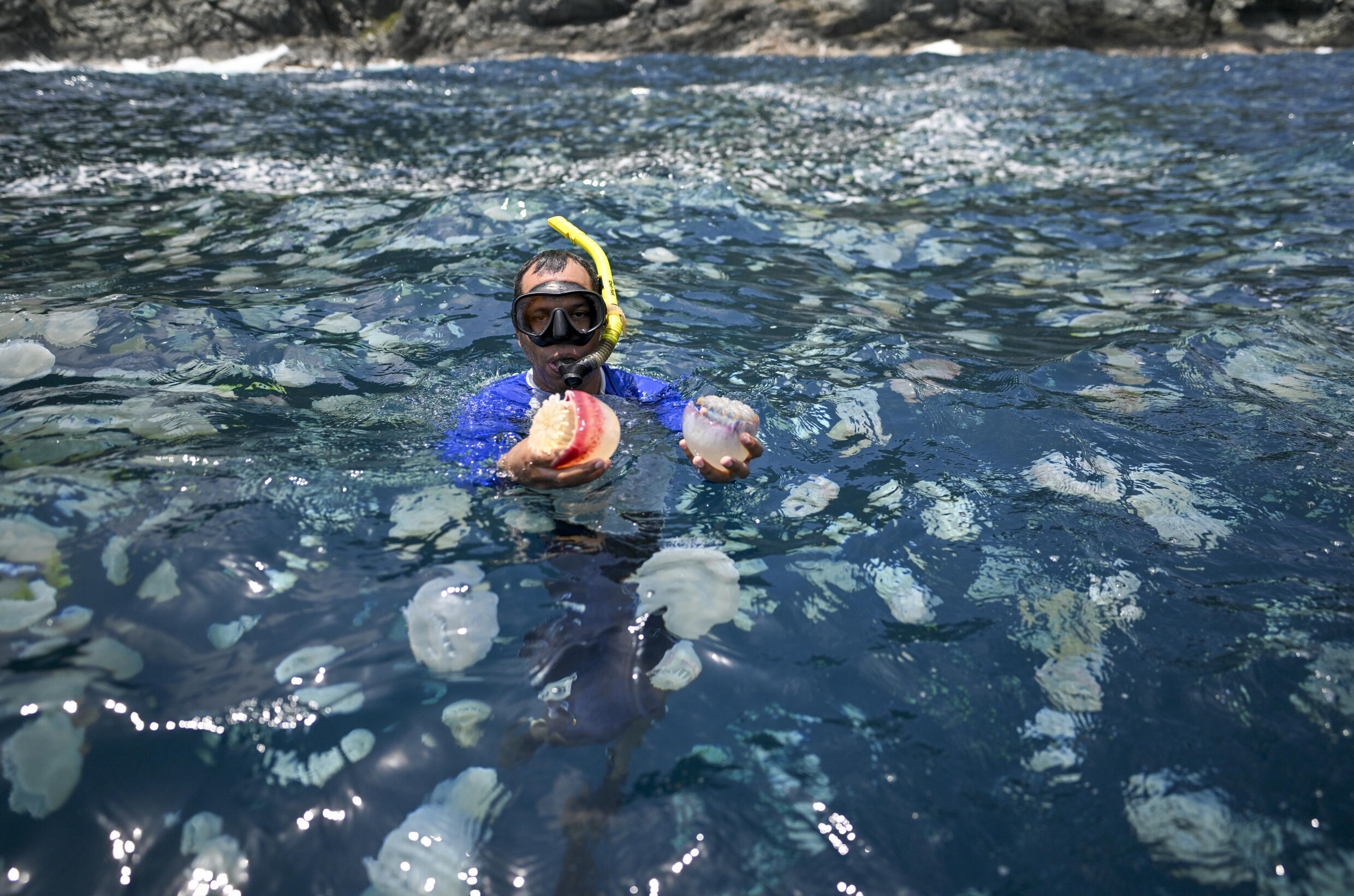‘Aid in dying’: What’s in the new French bill on assisted suicide
The French government on Wednesday introduced a bill on assisted suicide, paving the way for euthanasia under strict conditions. The text, which was deemed too restrictive by some and irresponsible by others, will be debated by lawmakers at the end of May.
The French Minister of Labour, Health and Solidarity Catherine Vautrin on Wednesday presented the bill on assisted suicide to the government before its examination by the National Assembly on May 27.
Long overdue, the bill was backed by President Emmanuel Macron who finally expressed support for it in an interview in March after a 2023 report showed that most French citizens support active assistance in dying.
Highly anticipated and heavily debated, the new text allows for patients to access assisted suicide, which, according to the government, is "an ethical response to the need to support the sick and the suffering. A solidarity project based on the idea of creating a space that is neither a new right nor a freedom, but a space that is a balance between respect and personal autonomy".
France currently authorizes deep sedation before death but active euthanasia and medically assisted suicide remain illegal.
Patients seeking such end-of-life options often have no choice but to travel to other countries where euthanasia is legal, leading to high-profile cases such as that of Alain Cocq.
In January 2023, an elderly woman suffering from aggressive, incurable cancer wrote an open letter to Macron before traveling abroad to be euthanized.
"If the French continue to go abroad [to die], it is because French legislation does not allow them to find an answer to their suffering: the free choice of their end of life, a dignified, humane end of life," she wrote.
Wednesday's bill – which uses the term "aid in dying" rather than euthanasia and assisted suicide – will allow patients to request the administration of a lethal substance.
Medically assisted suicide involves patients taking, of their own free will, a lethal drink or medication that has been prescribed by a doctor to those who meet certain criteria.
Active euthanasia involves doctors or other health practitioners giving patients who meet certain criteria a lethal injection at their own request.
Passive euthanasia involves the withholding of life-sustaining treatment at the patient's request.
Strict rules
To benefit from the newly proposed measure, patients would have to be of legal age (over 18), and hold French citizenship or French residency, Vautrin told journalists after a Cabinet meeting.
A team of medical professionals would need to confirm that the patient has a grave and incurable illness, is suffering from unbearable pain that cannot be assuaged and is seeking lethal medication of their own free will.
According to the text, the patient must also be perfectly capable of expressing his or her wishes, which excludes those with severe psychiatric conditions and neurodegenerative disorders such as Alzheimer’s disease even if they made their wishes known before their mental capacity deteriorated.
If a patient’s request for 'aid in dying’ is approved, a doctor would then deliver a prescription, valid for three months, for the lethal medication. People would be able to take it at home, at a nursing home or a health care facility, Macron said.
If their physical condition doesn’t allow them to do it alone, they will be allowed to get help from someone of their choice or by a doctor or a nurse, he said.
The government also announced €1.1 billion in new spending on palliative and other end-of-life care.
Heavy debate
In France, the debate on end-of-life care can be traced back to the 1999 law which seeks to ensure the right of access to palliative care for patients with a short- or medium-term life-threatening prognosis.
In 2016, France adopted the Claeys-Leonetti Law which provides terminally ill and suffering patients the right to continuous deep sedation until death.
Public debate on assisted suicide was ignited again in 2021 when French MP Olivier Falorni advocated for a bill on medically assisted suicide that was met with fervent opposition from the right.
Vocal opponents including religious groups and healthcare providers continue to oppose assisted suicide, which they view as a major drift.
While Catholics and Muslims argue that life is sacred and only God can determine when it ends, caregivers say that providing palliative care, which is still not widely available in France, should remain the priority. That, they insist, would help ensure patients do not seek out assisted suicide because of a lack of end-of-life care.
According to a study published Wednesday by a French palliative care association, 80 percent of healthcare professionals "would refuse to prescribe, supply, prepare and/or administer a lethal injection".
"Some 60 to 70 percent of palliative care providers are against changes [to the law], but I think they'll accept when the law is in place," President of the French National Consultative Ethics Committee Jean-François Delfraissy told Public Sénat on Tuesday.
"But if you look at other doctors – anesthesiologists, cardiologists, oncologists, emergency physicians – the opposite is true: 60-70 percent of them are in favor of changing the law," Delfraissy said.
"You don't make an end-of-life law against the medical profession, but you don't make an end-of-life law against citizens either," he said.
Assisted suicide in Europe
While opinion polls show that most French people are in favor of euthanasia, France has been slow to legislate on the issue, whereas several of its European neighbours have already legalized assisted suicide.
In 2001, the Netherlands became the first country in the world to legalize active euthanasia. The country took a further step last April by authorising euthanasia for children under the age of 12 suffering from terminal illnesses.
Belgium, which legalised euthanasia in 2002, has since 2014 allowed euthanasia for minors in certain medical situations. The doctor must ensure that the patient possess clear judgement at the time of his or her request, and that the conditions he or she is suffering from are untreatable.
In Switzerland, where renowned film director Jean-Luc Godard chose to end his life through assisted dying, euthanasia is governed by a code of medical ethics and supported by organizations such as Exit, which accompanied more than 1,750 people to access end-of-life care in 2023.
Italy, for its part, decriminalized assisted suicide in 2019 for patients suffering physically and psychologically from serious, incurable conditions.
Meanwhile Austria legalized assisted suicide in 2021 for people suffering from terminal illnesses.
In Luxembourg, euthanasia has been authorized for adults since 2009.
Spain, one of the latest countries to legalize assisted suicide, allowed euthanasia in 2021.
As for Portugal, the law decriminalizing active euthanasia was adopted in May 2023, allowing it when "medically assisted suicide is impossible due to the patient's physical incapacity".
(with AFP)
This article has been translated from the original in French.





 Joxmer Scott-Frias, researcher at the Institute of Zoology and Tropical Ecology of the Central University of Venezuela, swims among cannonball jellyfish © Juan BARRETO / AFP
Joxmer Scott-Frias, researcher at the Institute of Zoology and Tropical Ecology of the Central University of Venezuela, swims among cannonball jellyfish © Juan BARRETO / AFP The jellyfish bloom and the presence of the invasive coral Unomia stolonifera, which smothers native corals, have become a headache for local fishermen © Juan BARRETO / AFP
The jellyfish bloom and the presence of the invasive coral Unomia stolonifera, which smothers native corals, have become a headache for local fishermen © Juan BARRETO / AFP